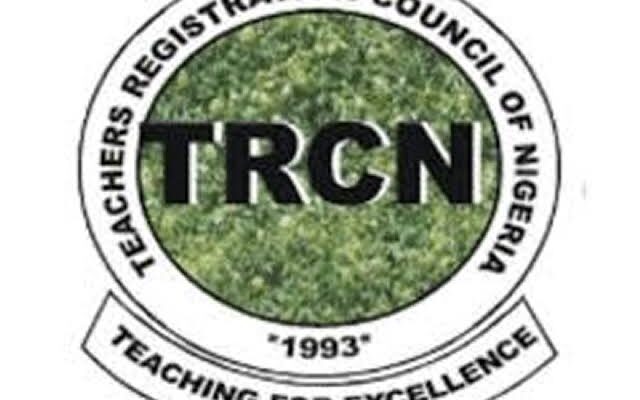IN an attempt to enforce compliance with the Federal Government directive on weeding out unqualified teachers from the classrooms across the country, the enforcement officials from the Teachers’ Registration Council of Nigeria were arrested and detained in a state by the police on the orders of the state government, a TRCN official has revealed.
Head of Regulation, Accreditation and Enforcement, TRCN, Hammed Okunola, while trying to explain the predicament of the Council on carrying effective monitoring and enforcement of standards, said the unnamed state capitalised on the loopholes in the TRCN Establishment Act, given the fact that education is on the concurrent list.

He spoke during the weekend in Abuja at a one-day workshop organised by the Education Correspondents Association of Nigeria (ECAN) in collaboration with TRCN with a theme: “Strengthening Teacher Education: Challenges and Opportunities in Basic Education in Nigeria”.
Recall that the Federal Government had slated December 31st, 2019 deadline for all teachers in the country to register and get certification from the Teachers’ Registration Council of Nigeria or get booted out of the system.
The enforcement exercise by TRCN appeared to have met brick walls, first by COVID-19 pandemic that led to shutdown of schools for the good part of 2020 and of course, the resistance by state governments as portrayed by the TRCN official.
It was, however, gathered that more teachers have now registered and got certification as the Council revealed that it has registered over 2.3 million teachers nationwide in its database.
Okunola said: “Education in Nigeria is under concurrent list. In our office, under my purview, we have what is known as compliance and enforcement decisions. That particular decision is like a toothless dog that cannot bite. It is because education is under concurrent list.
“I will give you one instance, about two years ago before COVID-19 pandemic, we went for an enforcement but I don’t want to mention the particular state. When we got to that state, we were arrested, those people that were paid to carry out the enforcement. Those people were taken to the police station and we have to look for a lawyer to go and bail them.
“We felt that was an affront and we challenged that particular incident in the court. At the end of the day, we were told to go and read our policy very well; that education is under concurrent list and the state can legislate and decide who to recruit. He who plays the piper calls the tune.
“TRCN is not the one employing teachers and this is part of what is causing all these gaps. TRCN is not the one employing teachers but state governments, SUBEBs (State Universal Basic Education Boards) are the ones employing teachers.
“They employ people who pay patronage or play part in their electioneering and they don’t want you to touch them. These are part of what we are facing;” he said.
He further noted that the private sector does not help matters by recruiting unqualified teachers, saying they collect millions from parents and want to pay stipends to teachers because they want to maximize their profit.
Registrar and Chief Executive of TRCN Prof. Josiah Ajiboye who was represented at the event, however said the Council is the highest regulatory body for the teaching profession in Nigeria and had been mandated to regulate and control the teaching profession in all its aspects and ramification and at all levels of the education system.
He noted that universally, teachers are key players in the Education sector of any nation.
Ajiboye lamented that the challenge with Nigerian education was largely attributed to poor teaching, where experienced professional teachers who are highly committed, dedicated and virile were difficult to find in our schools.
“Therefore, the Council in fulfilling its mandates which involves innovations in public policies to upscale the dignity, rewards and recognition of the teaching profession in Nigeria, took some practical steps to salvage the situation,” he said.
Those steps he noted among others include; the career path policy for the teaching profession (Beginners proficient, mentor and the distinguished), elongation of teachers’ years of service from 60 to 65 years with other incentives.
He added that the Council has engaged in digital literacy and remote learning with 22,500 teachers across 16 states benefitting, remediation of over 7,000 quack teachers on BAY states of Adamawa, Borno and Yobe as well as registration of over 2.3 million teacher among other innovations.
Earlier in his welcome address, the Chairman, ECAN, Chunks Ukwuatu said it was a well established fact that proper teacher education is a key tool required by professionals in the teaching profession to excel in a dynamic global community.
He noted that the success of an educational enterprise particularly in terms of quality delivery depends on a large extent on the regular supply of quality teachers.







